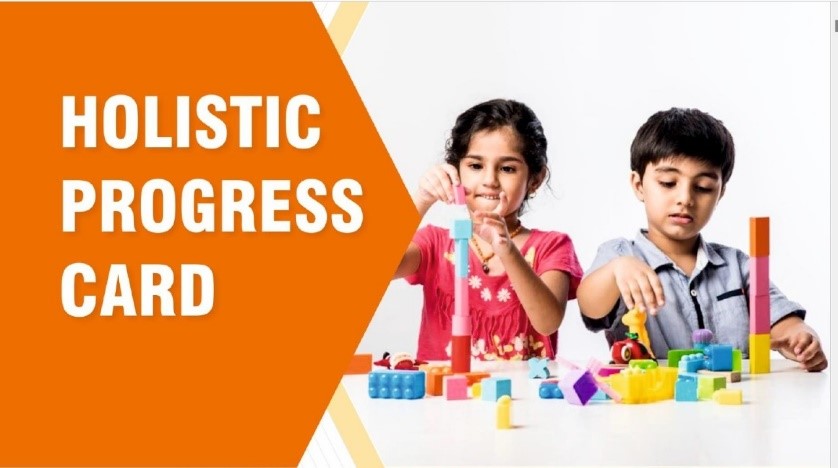Description

Disclaimer: Copyright infringement not intended.
Context
- The traditional report cards students receive in schools are set to undergo a major change.
- The National Council for Educational and Research Training (NCERT) is introducing a new ‘Holistic Progress Card’ (HPC), which will measure, apart from academic performance, a child’s progress in interpersonal relationships, self-reflection, creativity, and emotional application in classrooms.
Development of the Holistic Progress Card (HPC)
- Initiative by NCERT: The HPCs have been devised by Performance Assessment, Review, and Analysis of Knowledge for Holistic Development (PARAKH), a standard-setting body under the NCERT, for the foundational stage (Classes 1 and 2), preparatory stage (Classes 3 to 5), and middle stage (Classes 6 to 8), as per suggestions by the National Education Policy (NEP) 2020.
- 360-Degree Evaluation: The HPC no longer depends on marks or grades but relies on a 360-degree evaluation. This includes regular assessments through class activities where students are active agents, applying diverse skills and competencies to demonstrate their grasp of concepts.
- Student and Peer Evaluation: Students have a say in their evaluations, assessing their own as well as their classmates’ performance. This helps identify strengths and weaknesses, such as ability to collaborate, follow instructions, show creativity, or empathy, among others.
- Parental Involvement: The HPC links home and school by making parents an integral part of a child’s learning process. Parents’ inputs on their child’s ability to do homework, follow lessons, and balance screen time with extracurricular activities at home are included.

Implementation and Adoption
- Rollout: After PARAKH prepared the HPCs for students up to Class 8, it was sent to all states and Union Territories in September 2023, with the NCERT asking them to either adopt the HPC or make modifications that suit their regional requirements.
- Current Adoption: 15 to 16 states and UTs are already using the new method at the foundational and preparatory stages, according to PARAKH’s CEO, Indrani Bhaduri.
Rationale for Change
- NEP 2020: The change aligns with the NEP 2020, which aims to build self-awareness and self-esteem by communicating strengths and areas of improvement, and focuses on evaluating higher-order skills like analysis, critical thinking, and conceptual clarity.
- National Curriculum Framework for School Education: The assessment of progress should be based on systematic collection of evidence, including peer and self-assessment, as per NCF SE, which also suggests classroom assessment through various activities to understand core competencies.

Benefits of the Holistic Progress Card
- Beyond Numerical Grades: The HPC goes beyond numerical grades, focusing on descriptive and analytical evaluations that encompass academic achievements as well as the development of critical skills in a child.
- Shift to Formative Assessment: It promotes a shift from summative to formative assessment, fostering competency-based evaluation and holistic growth.
- Insights for Teachers and Parents: The HPC provides teachers and parents with insights to support each student in learning, aiding in their overall development.
The HPC represents a significant departure from traditional assessment methods, aiming to provide a more comprehensive and insightful evaluation of students' progress and development.
|
PRACTICE QUESTION
Q. Discuss the need for the introduction of the Holistic Progress Card (HPC) in Indian schools. How does the HPC address the limitations of traditional report cards? How can the HPC contribute to the objectives of the National Education Policy (NEP) 2020?
|














